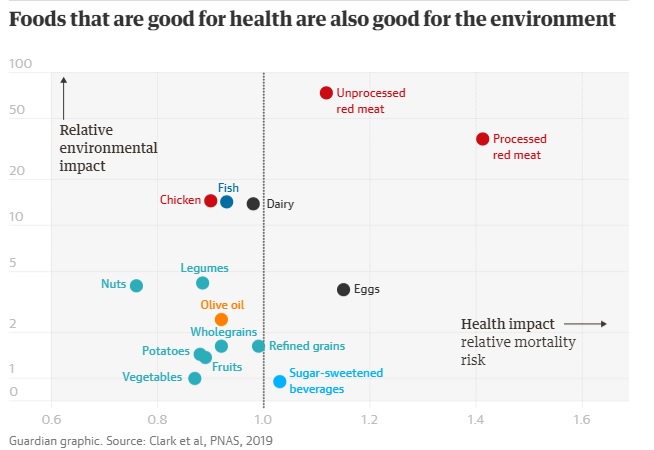Read the full article in The Guardian
Eating healthy food is almost always also best for the environment, according to the most sophisticated analysis to date.
The researchers said poor diets threaten society by seriously harming people and the planet, but the latest research can inform better choices.
The analysis assessed the health and environmental impacts of 15 foods common in western diets and found fruit, vegetables, beans and wholegrains were best for both avoiding disease and protecting the climate and water resources. Conversely, eating more red and processed meat causes the most ill health and pollution.
“Choosing better, more sustainable diets is one of the main ways people can improve their health and help protect the environment.”
The research, published in the journal Proceedings of the National Academy of Sciences, assessed plant-based foods including fruits, vegetables, legumes, nuts, potatoes, refined grains and wholegrain cereals, and sugar-sweetened beverages, and animal-based foods such as raw and processed red meat, chicken, dairy products, eggs and fish.
Producing unprocessed red meat had the highest impact for all environmental indicators and was many times worse than pulses.
Prof Tim Benton at the Chatham House thinktank, who was not part of the team, said: “The [new research] is the most sophisticated analysis to date that brings health and environment together.
“If we can produce reasonable guidelines of what a healthy and sustainable diet is, and were those guidelines to be adopted, the world and its people would be in a much better place.”

